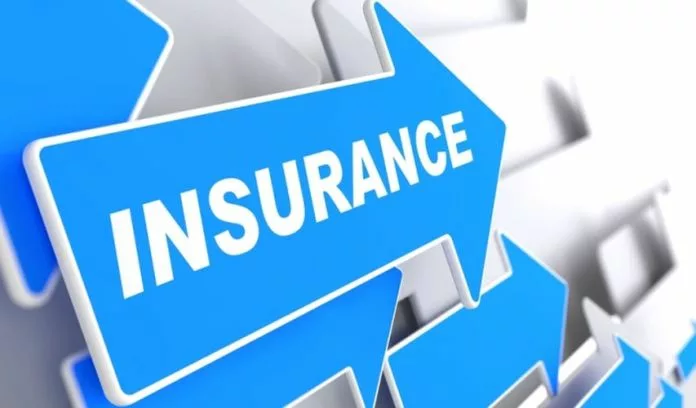In recent years, Nigeria’s insurance industry has seen significant growth, thanks to increasing awareness about the importance of financial protection and risk management. However, despite this progress, insurance penetration in Nigeria remains relatively low compared to other regions, meaning many Nigerians are still unfamiliar with the various types of insurance available to them.
Whether you’re a young professional, a family provider, a business owner, or an investor, understanding the insurance options available in Nigeria is crucial for protecting your financial future. In this comprehensive guide, we’ll explore the different types of insurance products available, how to choose the right coverage, and some key factors to keep in mind when navigating the Nigerian insurance market.
1. Understanding Insurance in Nigeria
Insurance in Nigeria is regulated by the National Insurance Commission (NAICOM), which oversees the industry to ensure that insurance companies are financially stable and operate in accordance with the law. The Nigerian insurance industry offers a variety of products, ranging from individual coverage like health and life insurance to business-specific solutions like property and liability insurance.
2. Types of Insurance Available in Nigeria
a) Life Insurance
Life insurance is one of the most popular and essential forms of protection for Nigerians. It provides financial security for your family or dependents in the event of your death. There are two main types of life insurance policies:
- Term Life Insurance: Provides coverage for a specific period, usually between 10 and 30 years. If you pass away within the term, your beneficiaries receive a lump sum payout. If you outlive the policy term, there is no payout. Term life insurance is more affordable compared to whole life insurance.
- Whole Life Insurance: Offers coverage for your entire life and includes a savings or investment component. These policies tend to be more expensive but accumulate cash value over time. A portion of your premium goes toward the policy’s investment component, which grows over time and can be used as a financial asset.
Whole life insurance is ideal for people looking to build long-term wealth and protect their loved ones, whereas term life insurance is a more straightforward, budget-friendly option.
b) Health Insurance (Medical Insurance)
Healthcare costs in Nigeria can be expensive, particularly in private hospitals, which is why health insurance is a critical option for individuals and families. Health insurance in Nigeria typically falls into two categories:
- Private Health Insurance: This covers a wide range of medical expenses, including doctor visits, surgeries, hospital stays, and prescriptions. Private health insurance plans are provided by insurance companies like AXA Mansard Health, Leadway Health, and Reliance Health.
- National Health Insurance Scheme (NHIS): The NHIS is a government-backed health insurance program designed to make healthcare affordable for Nigerians. While coverage is generally more limited than private insurance, it provides basic health services at an affordable cost. The NHIS is primarily aimed at formal-sector workers, but there are also programs for informal workers.
Health insurance is crucial for protecting against high medical costs, especially with the rising incidence of diseases and the unpredictable nature of medical emergencies.
c) Motor Insurance
Motor insurance is mandatory in Nigeria under the National Insurance Commission (NAICOM) and the Motor Vehicle (Third Party) Insurance Act. It provides coverage in the event of an accident or theft of your vehicle. The main types of motor insurance are:
- Third-Party Insurance: This is the minimum requirement by law. It covers damage or injury you cause to other people or their property while driving your car but does not cover damage to your own vehicle.
- Comprehensive Motor Insurance: This provides broader coverage, including protection for your own vehicle, third-party damage, theft, fire, and natural disasters. It’s recommended for new and expensive vehicles.
- Third-Party, Fire, and Theft Insurance: This is a middle ground, covering both third-party damage and loss of your vehicle due to fire or theft but not accidental damage.
If you drive a vehicle in Nigeria, you must have at least a third-party policy. Comprehensive insurance is recommended for those looking for more protection.
d) Homeowners Insurance
Homeowners insurance protects your home and its contents from unexpected events like fire, flooding, theft, and natural disasters. The policy typically covers:
- Building and Property Insurance: Protection against physical damage to your home due to fire, theft, or natural disasters such as flooding and earthquakes.
- Content Insurance: Covers personal belongings inside the house, including furniture, electronics, and valuables like jewelry, in the event of theft, fire, or damage.
Homeowners insurance is essential for safeguarding your largest asset — your home — and ensuring you can repair or rebuild if disaster strikes.
e) Business Insurance
For entrepreneurs and business owners in Nigeria, business insurance is essential for protecting against the risks that come with running a company. There are several types of business insurance policies available:
- Property Insurance: Covers damage to business property (e.g., office buildings, equipment, inventory) from events like fire, theft, or natural disasters.
- Liability Insurance: Protects businesses from legal claims arising from accidents, injuries, or damages caused by your business operations. This can include Public Liability Insurance (for third-party accidents) and Employer’s Liability Insurance (for workplace injuries).
- Professional Indemnity Insurance: Provides coverage for professionals who may be sued for negligence, errors, or omissions while providing services. It’s essential for consultants, accountants, and other service-based businesses.
- Business Interruption Insurance: Covers loss of income if your business is temporarily shut down due to an insured event like fire or natural disaster.
- Motor Fleet Insurance: For businesses with a fleet of vehicles, this type of insurance covers multiple vehicles under one policy.
Business insurance helps protect your operations, assets, and employees, making it a must-have for any business in Nigeria.
f) Travel Insurance
Travel insurance provides coverage for unexpected situations while traveling, such as trip cancellations, lost luggage, medical emergencies, and travel delays. There are two main types of travel insurance:
- Single Trip Insurance: For one-off trips, covering a specific journey.
- Annual Travel Insurance: For frequent travelers, providing coverage for multiple trips within a year.
Travel insurance is particularly important for Nigerians traveling abroad or even within Nigeria, where travel risks like accidents, illness, and theft can disrupt plans.
g) Agricultural Insurance
For farmers and those in the agricultural sector, agricultural insurance protects crops, livestock, and farming equipment against risks such as drought, flooding, disease, and pests. It’s an important tool for managing risks that can threaten food production and livelihoods.
Agricultural insurance options in Nigeria include crop insurance, livestock insurance, and farm equipment insurance, and policies can be tailored to cover specific types of agriculture.
3. How to Choose the Right Insurance Policy in Nigeria
Choosing the right insurance policy in Nigeria involves understanding your needs, evaluating the options, and comparing different providers. Here are a few key steps:
a) Assess Your Needs
Determine what areas of your life or business require coverage. For example, do you need health insurance for your family or motor insurance for your vehicle? Are you looking to protect your business against liability? Start by identifying the key risks and how much financial protection you need.
b) Compare Insurers
Different insurance companies offer different products with varying premiums, benefits, and exclusions. Take the time to compare policies from different insurers to ensure you get the best coverage at the best price. Some of the leading insurers in Nigeria include:
- Leadway Assurance
- AXA Mansard
- Custodian and Allied Insurance
- Great Nigeria Insurance
- Reliance Insurance
- Stanbic IBTC Insurance
c) Understand the Terms and Conditions
Carefully read the policy documents to ensure you understand the coverage, exclusions, and limits. Clarify any doubts with the insurer or a licensed agent to avoid surprises later.
d) Check Financial Strength and Reputation
It’s important to choose an insurance provider with a strong financial track record and positive customer reviews. Look for companies that have been in the market for a while and have a reputation for paying claims promptly.
e) Consult an Insurance Broker
If you’re unsure about the best insurance options, consider consulting an insurance broker. Brokers have expertise in navigating the insurance market and can help you find policies that suit your needs.
4. Conclusion
Navigating Nigeria’s insurance market can be complex, but understanding the different types of insurance products available and how they can benefit you is essential for financial security. Whether you’re looking for life insurance, health coverage, motor insurance, or business protection, there are plenty of options to choose from. With careful research and the help of professional advisors, you can select the insurance that provides the best protection for you, your family, or your business in Nigeria.




